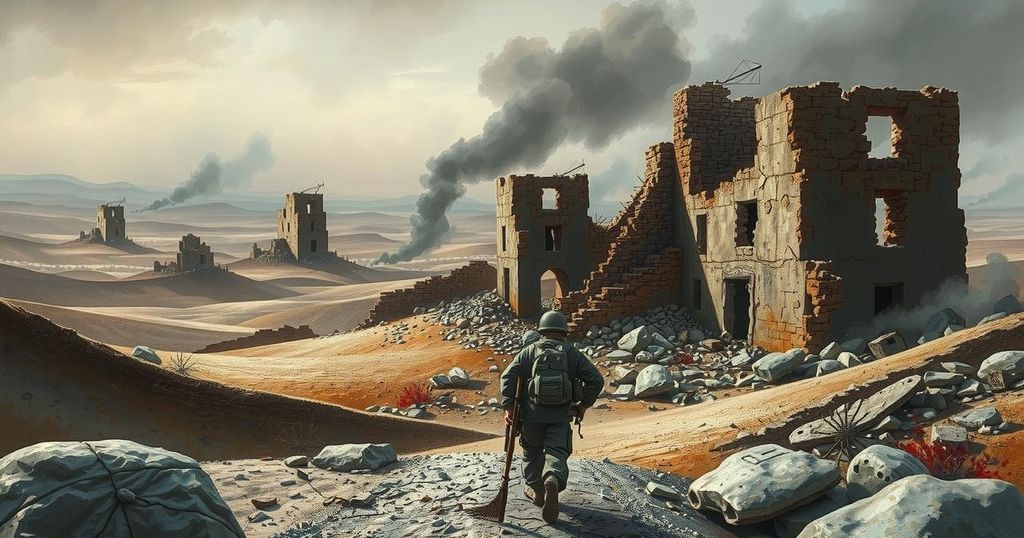The civil war in Sudan is at a critical stage after nearly two years, with the military gaining control of Khartoum. Despite this, the RSF continues to resist, leading to fears of a partitioned Sudan. Both factions have established parallel governance structures and face serious accusations of human rights violations, complicating the prospect for peace.
The ongoing civil war in Sudan is now at a critical phase after nearly two years of conflict, resulting in tens of thousands of deaths and millions displaced. The military has reportedly regained control over the capital, Khartoum, including the historic Republican Palace, although the Rapid Support Forces (RSF) have yet to confirm this loss.
The conflict began in April 2023, marked by battles between the military and RSF, originally allies tasked with facilitating a democratic transition following the 2019 popular uprising. This alliance deteriorated into a violent power struggle, leading to an official death toll of at least 28,000, with actual numbers likely being much higher. Over 14 million people have been forced from their homes, exacerbating the situation to near famine conditions in some regions.
Though the military has made recent gains, the conflict is expected to evolve rather than conclude. This shift may result in a de facto division of Sudan, with military and RSF-controlled areas. Military leader Gen. Abdel-Fattah Burhan has shown little interest in pursuing urgent peace negotiations, while RSF leader Gen. Mohamed Hamdan Dagalo appears resolute in continuing the fight. Notably, the RSF retains control of significant territories, particularly in western Sudan, especially in the Darfur region.
The RSF is establishing a parallel governmental framework, as evidenced by a charter signed in February in Nairobi. This initiative suggests the possibility of two competing administrations, further entrenching Sudan’s division as Burhan has also mentioned forming a transitional government. The RSF’s charter promotes a democratic state that respects the autonomy of Sudan’s diverse communities.
Emerging from the infamous Janjaweed militias, the RSF has been implicated in numerous wartime atrocities. The Biden administration has imposed sanctions on Dagalo, citing RSF’s involvement in genocidal acts, which the organization unequivocally denies. Concurrently, the military also faces accusations of human rights abuses and maintains its innocence concerning these claims.
The civil war in Sudan remains unresolved as military advances signal a potential transition to a partitioned state, with competing governance structures emerging. The persistent conflict indicates a prolonged struggle for power between the military and RSF, with both sides accused of grave human rights abuses. As millions suffer, the international community watches closely, emphasizing the urgent need for peace and stability in Sudan.
Original Source: www.newsday.com






